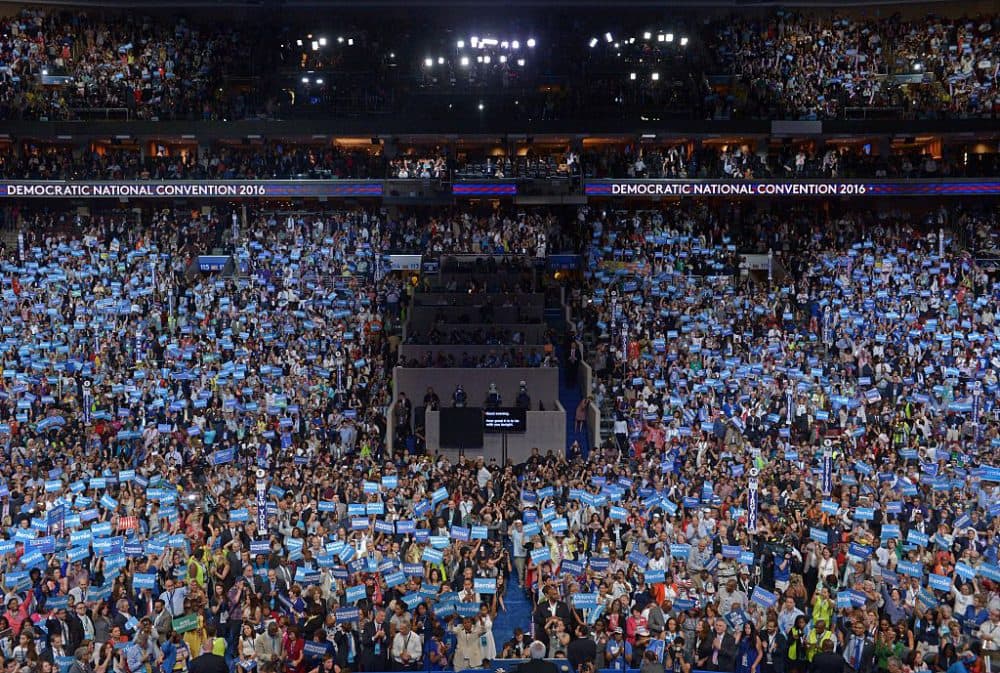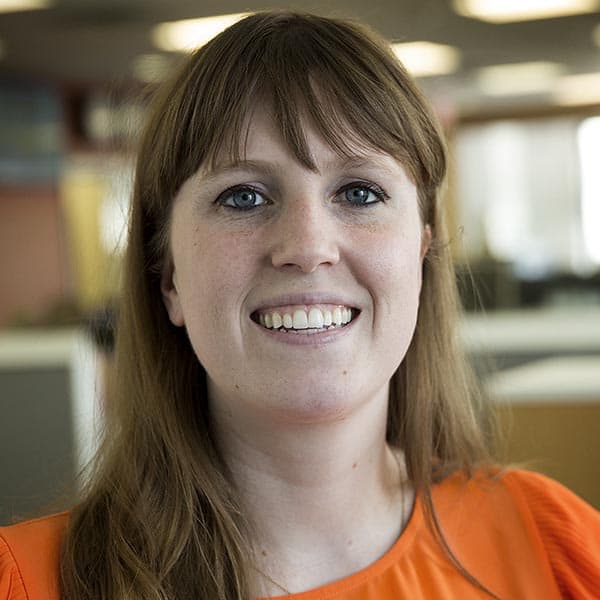Advertisement
Here's How The New Democratic Party Rules About Delegates Will Impact The 2020 Election

While the popular vote in early states like Iowa and New Hampshire commands a lot of attention during primary season, the nomination really comes down to delegates.
Those are the people who will vote at the Democratic National Convention this summer. A candidate needs a majority of them to carry the combined delegate vote.
This year, the rules have changed — perhaps in part to avoid the speculation that happened after the nominating convention in 2016, where supporters of Bernie Sanders felt cheated out of the nomination.
Sanders implied as much himself in a June 2019 interview on MSNBC.
"Some people say that if maybe that system wasn't rigged against me I would have won the nomination and defeated Donald Trump. That's what some people say," Sanders said at the time.
Radio Boston spoke with Democratic party official and Boston attorney James Roosevelt, Jr. about the changes. Roosevelt co-chairs the Rules Committee at the DNC and will be on the Credentials Committee at the convention this summer.
Interview Highlights
On how super delegates (or automatic delegates) will work in 2020
Super delegates will not be allowed to vote on the first ballot. They can do everything else, they can be on the floor of the convention, they can be involved in the platform and the rules and so on. But they can't vote on the first ballot. If it should go to a second or more ballot, then they get the vote. But what that means is that when the Associated Press and CNN and so on do their tallies of how many delegates a candidate has going into the primaries in the various states, those super delegates can't be counted because they may never get to vote if it's decided on the first ballot.
On whether he feels prepared for a possible "brokered convention," meaning no candidate wins a majority of pledged delegates before the convention
I do like the term open convention or contested convention ... because 'brokered' conjures up the bosses of past years making a decision in the smoke-filled rooms. Not only do we not have smoke anymore, another rule we have now is that [bosses] cannot pledge the people in their delegation. Everyone gets their own vote.
[A brokered convention could mean] that a candidate that starts late might have a chance. It means that if there is really a diversity of views in the party as the primaries and caucuses go along, maybe a convention is just what it's set out to be — a body that makes a decision on who will be the best nominee to represent the party's point of view.
On criticism over candidates high spending in the primary race
The limitations on what can be spent are subject to federal law, not to rules we make in the party. Mayor [Michael] Bloomberg is obviously willing to spend a lot of his money ... the way Tom Steyer is, apparently to a greater effect than Steyer is getting.
On criticisms of the role veteran party officials have over the rules of the convention
The highest compliment I got in 2016, with all the recriminations that went on between the Sanders and Clinton campaigns and the DNC itself, of course, was [when Sanders' campaign manager and one of his chief strategist] came to me and said, 'The one thing we found we could count on all the way along is that you and your co-chair were always fair to us.' That's our standard on the Rules and Bylaws Committee, that will be our standard and the Credentials Committee.
This article was originally published on February 17, 2020.
This segment aired on February 17, 2020.

